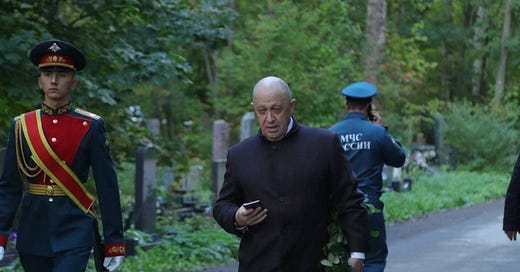Did the CIA back Prighozhin or assassinate him?
The increasingly bizarre mental gymnastics of pro-Russian "anti-imperialists."
I haven’t had much to add to the news of death merchant Yevgeny Prigozhin’s assassination beyond laughing at the idea that the culprit was the CIA — or the Covid vaccine. (Prighozhin’s plane crashed, the joke goes, because his pilot had a heart attack after getting vaccinated — an obvious parody, but one so many people bit on that Forbes had to debunk it
Keep reading with a 7-day free trial
Subscribe to Carl Beijer to keep reading this post and get 7 days of free access to the full post archives.





